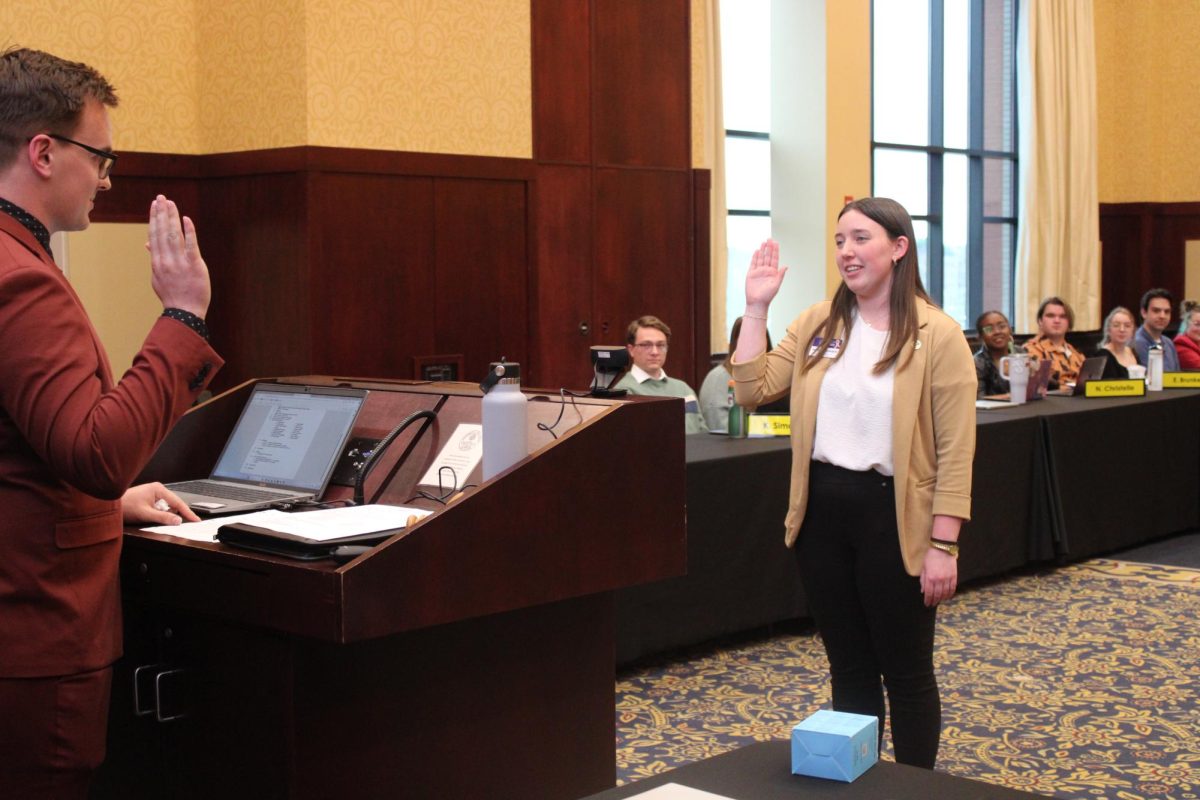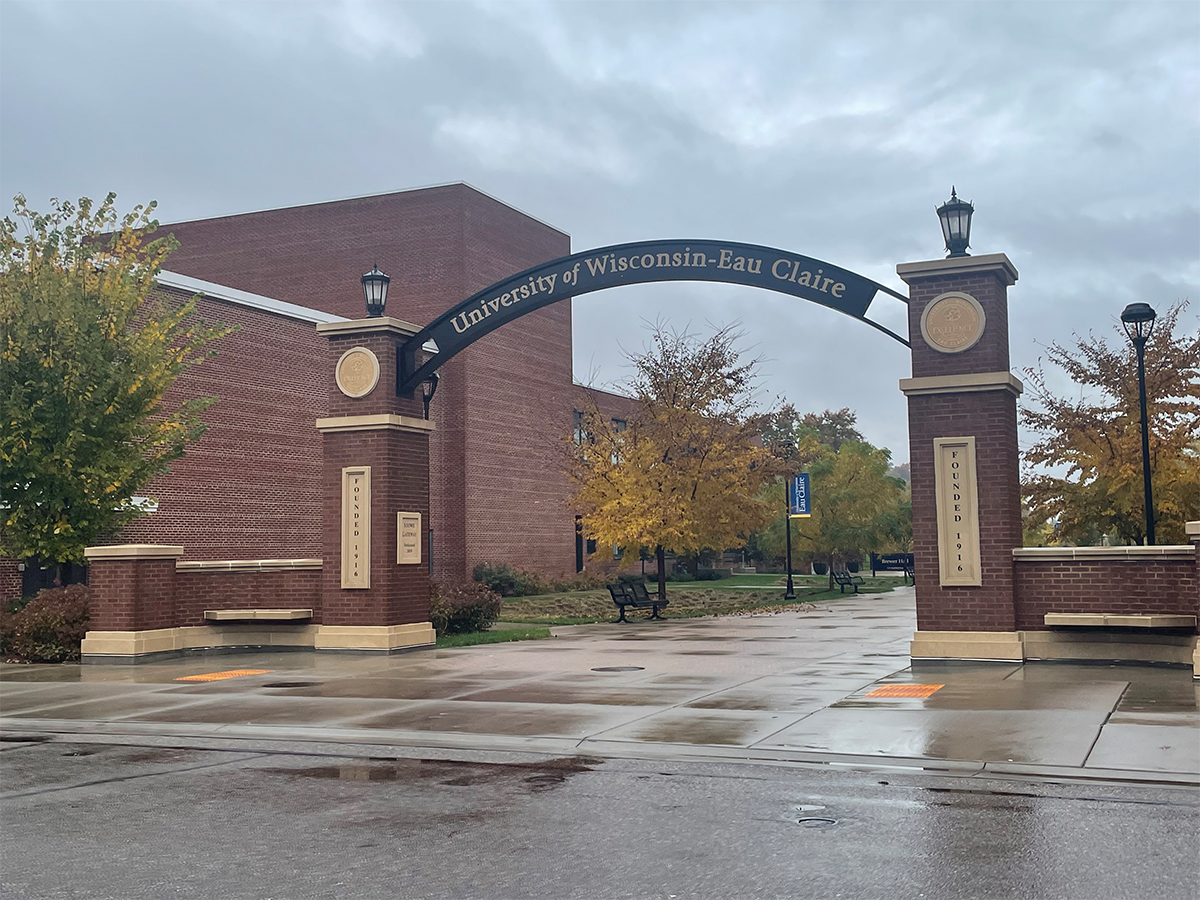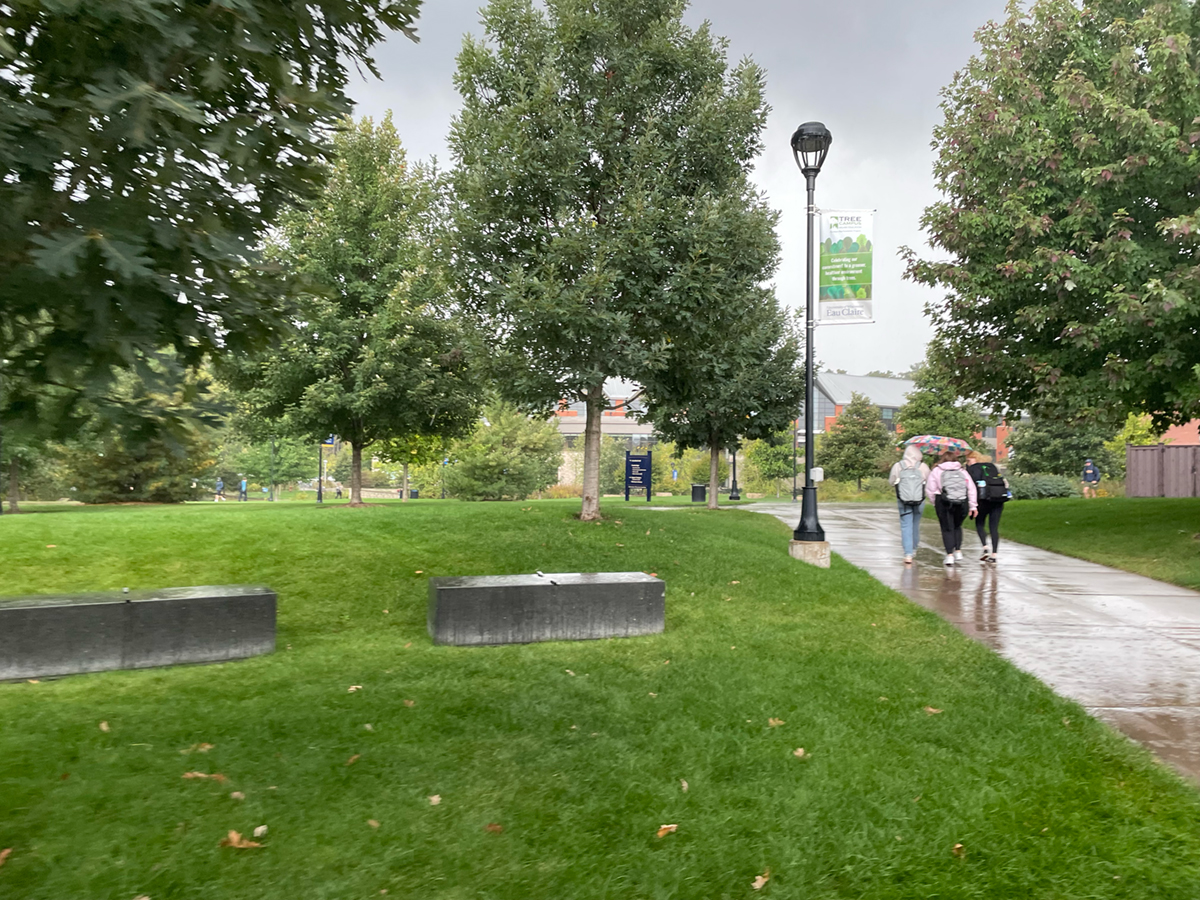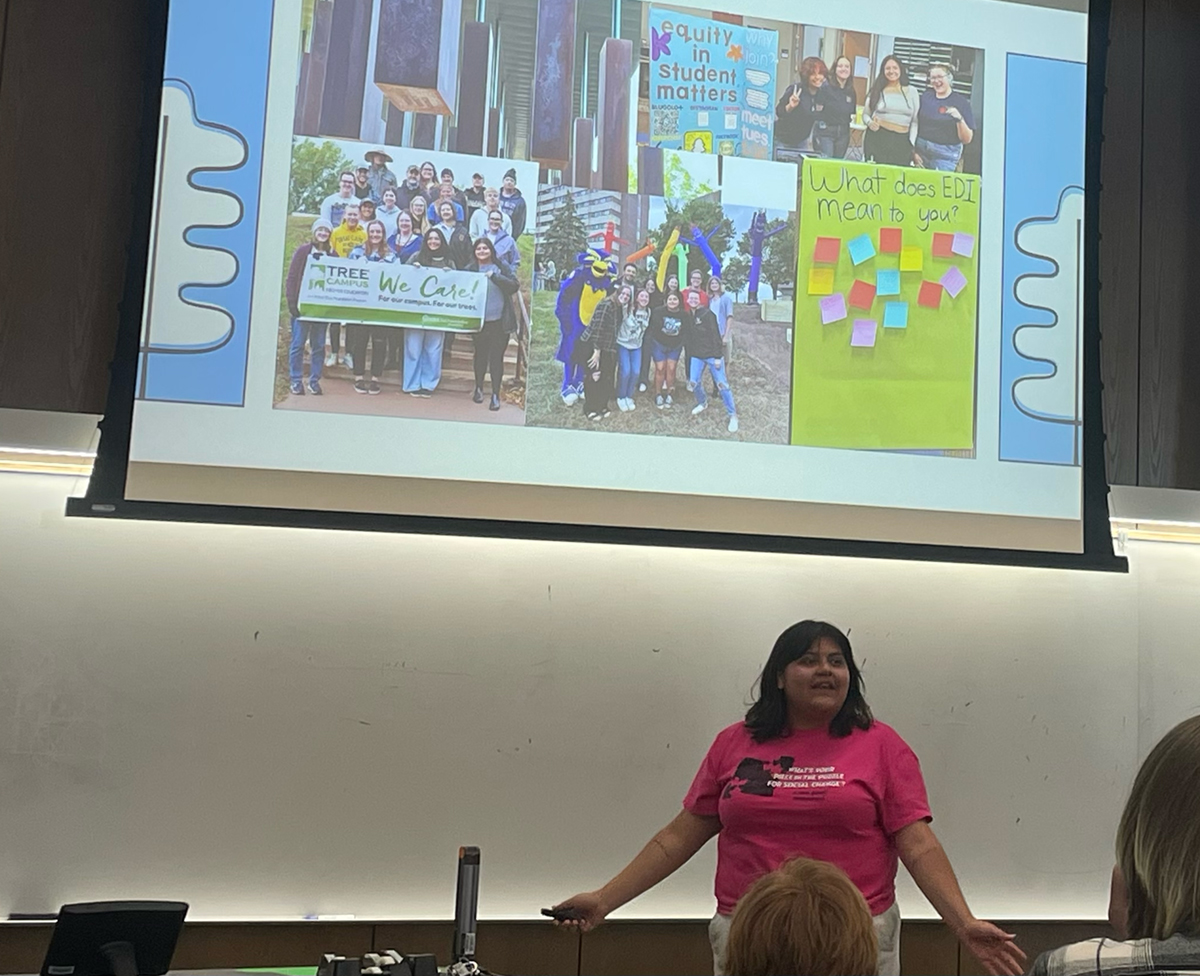Almost a year after their election, Student Senate President Sarah Schuh and Vice President Matt Flaten now find themselves on opposite sides of a whole new debate.
At Monday’s Senate meeting, Schuh, a junior, officially appointed herself to chair Senate’s three-person elections committee, prompting the resignation of Parliamentarian senior Laura Dean on Tuesday. The appointment also has fueled concerns among senators about a possible conflict of interest.
According to Senate’s official elections and campaigns procedures, “the Parliamentarian will chair the (elections) committee unless that individual is running for office.”
The elections committee chair is in charge of recruiting student poll workers and dealing with grievances filed against any campaign. The chair also views the vote totals at the end of each of the three days of voting, Schuh said. Senate elections run Monday through Thursday.
At no time was Dean running for office, Flaten, a senior, said. But she did originally intend to support the Adrian Klenz presidential ticket, which she felt made her ineligible to accept the chair position.
Last week, however, Dean changed her mind, dropped her name from the Klenz ticket and decided to accept the chair position, Klenz said.
Dean declined to comment.
Dean and Flaten approached Schuh with Dean’s decision to accept the chair position, Schuh said. But by that time, Schuh already had been acting as chair, and the senators knew it, Schuh said.
When Schuh officially announced her appointment during Monday’s Senate meeting, no one raised any objection. The appointment passed unanimously.
“That should speak volumes,” sophomore Student Senator Sarah Bolstad said in an e-mail. “I think that if anyone took issue with that appointment, they should have made their case right there and then – in the appropriate forum.”
Three senators attempted to question Schuh’s appointment in the executive board meeting preceding the Senate meeting Monday, Klenz said in an e-mail.
“It wasn’t even put up to a vote,” Klenz said. “No one fought it in Senate because I think they knew she had run it through, and most of the senators had no idea what was going on. They didn’t know what had happened in exec(utive) board.”
A conflict of interest?
The main reason for objecting to Schuh’s appointment as committee chair is the presence of two referenda that students will vote on, Flaten said.
One referendum involves Eau Claire’s continued participation in United Council, a UW System-wide student lobbying organization. A referendum to stay in UC comes up every three years.
Schuh is United Council vice president.
The more important issue, Flaten said, is the referendum for construction of a new $36.1 million student center on campus.
Schuh also is a member of the Student Center Planning Committee.
“In my time at school, there has never been a referendum this huge,” Flaten said. “I’m mystified that (Schuh) doesn’t see this as going to put a cloud over the results.”
He doesn’t doubt Schuh’s integrity he said, but her appointment does raise questions about possible conflicting interests.
The new student center proposal is such a contentious issue because Senate isn’t unified on the decision to build a new center, senior senator Nate Otto said.
Klenz and his running mate, sophomore Senator Kate Demerse, voiced their opposition to a new student center during a debate Wednesday. Sophomore Presidential candidate Saskia Harak and her running mate, Senator Kevin Funk, a junior, were less vocal about their position, downplaying it as something that shouldn’t be a campaign platform issue.
With students voting for president and vice president at the same time they vote for the referendum, a potential center is a completely separate issue, Harak said at the debate.
Funk serves on the center planning committee with Schuh.
Bolstad also serves on the committee, which is purely neutral and informational, she said. The committee’s role is not to push for a “‘yes’ vote” on the new student center, Bolstad said.
But the informational brochures distributed by the committee, which bear Schuh’s picture, include the phrase, “On March 3-6, cast your vote for the future – Vote for a new student center!”
The brochures also contain pros and cons about building a new center.
“I’m uncomfortable with the elections chair actively campaigning for (the new center),” Otto said. “Change the literature and I have no beef with anybody.”
Otto said he wouldn’t have a problem with Schuh chairing the elections committee if her picture and letter to students were removed from the brochure.
Schuh maintains her student center committee membership is informational rather than promotional.
“My involvement in the Davies Expansion Committee means I know a lot and have voiced student concerns in the committee,” Schuh said. “It has nothing to do with the referendum.”
Problem solving and moving on
Schuh’s situation is not unique. During the 2000 election, Senate President Eric Kasper also served as elections committee chair. That year, both United Council and the first Davies Center referendum were on the ballot.
The difference this time around is the student center vote is likely to be a lot closer, senior Craig Smith, who was a student senator during the 2000 election, said. That’s raising some questions.
Because the situation has arisen previously, Senate needs to carefully examine its bylaws, Flaten said. He is running for re-election as an off-campus senator and intends to propose such a review immediately if re-elected.
No matter what, the allegations being posed won’t affect Senate in the long run, Otto said.
“It’s a pretty explosive issue,” he said, adding, that despite the current situation, relations within Senate generally are good.
“Senate’s going to recover,” Otto said.






